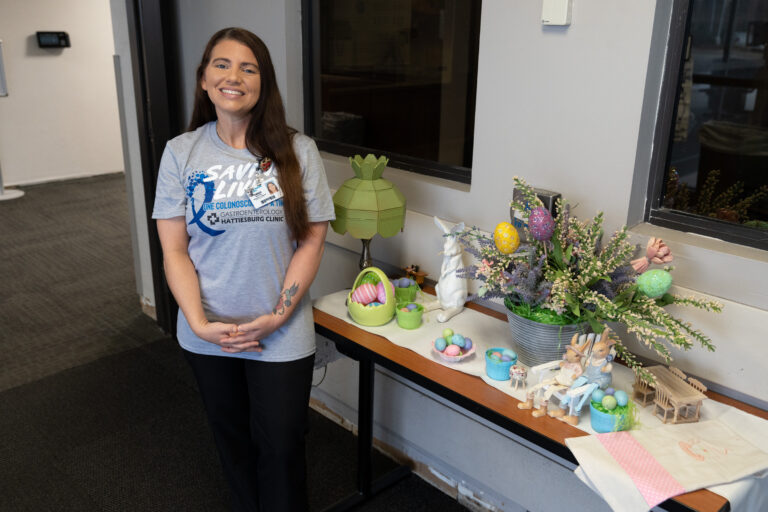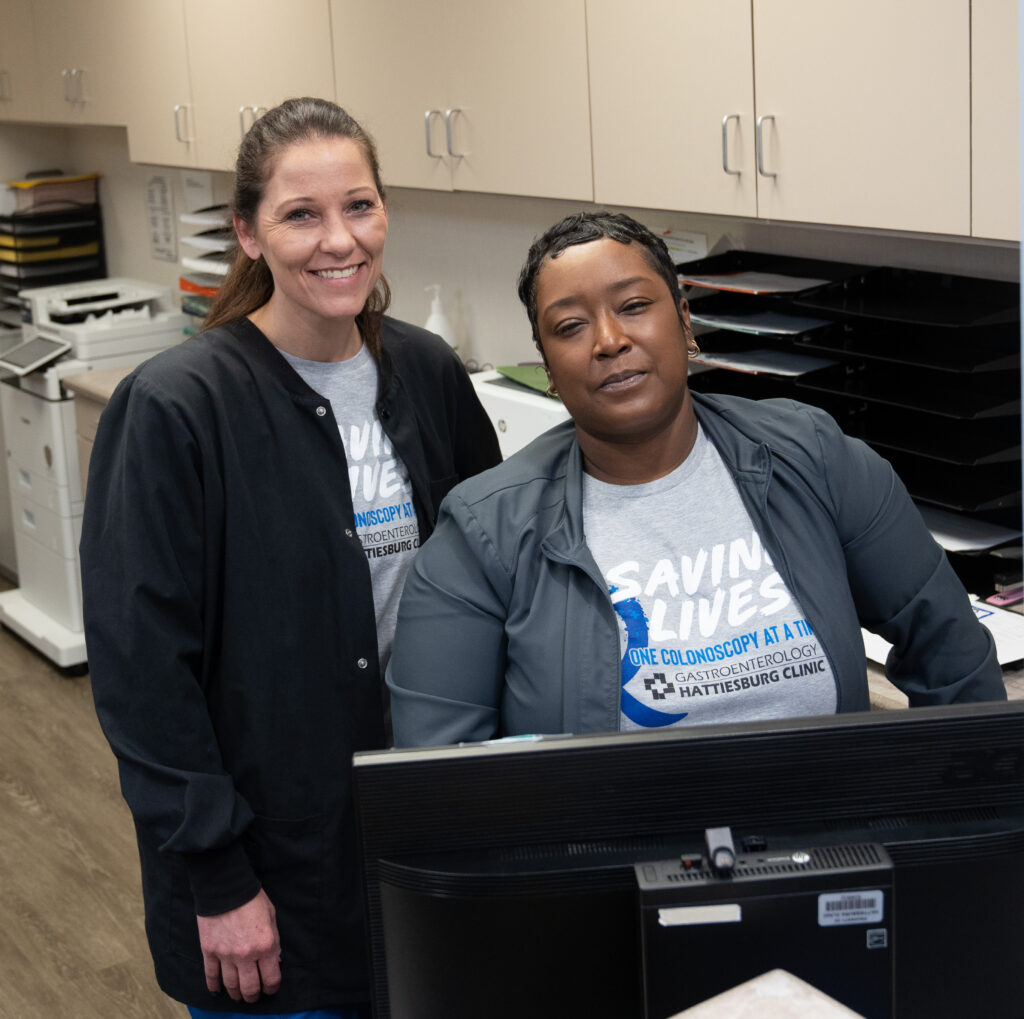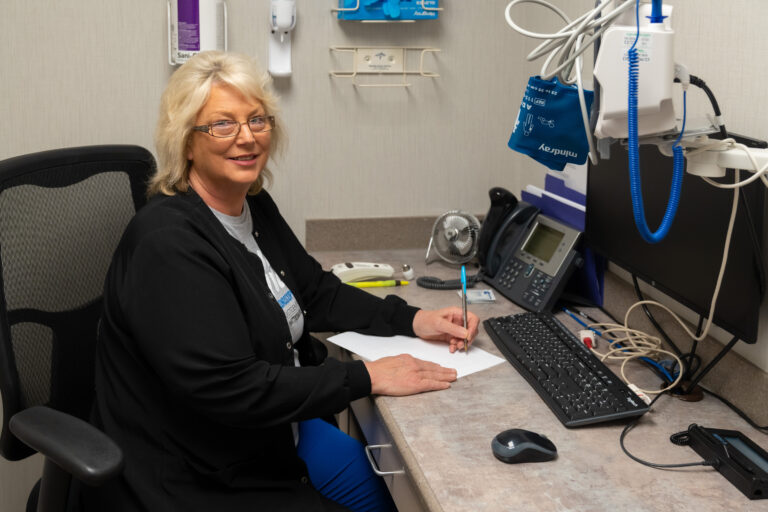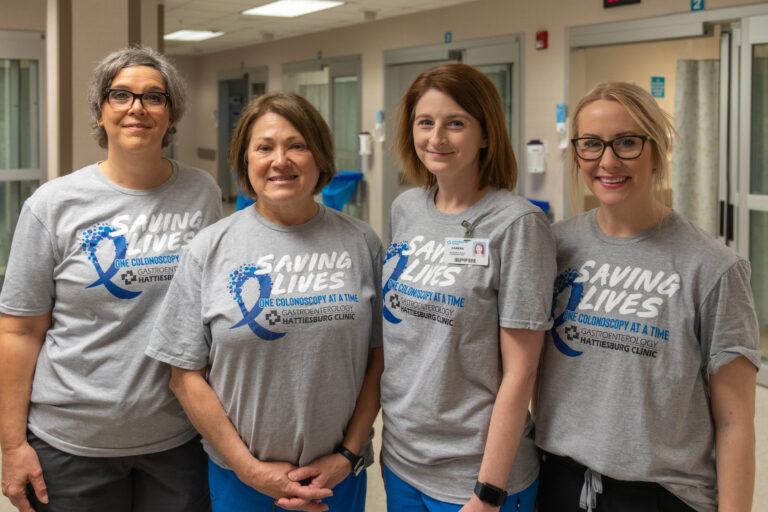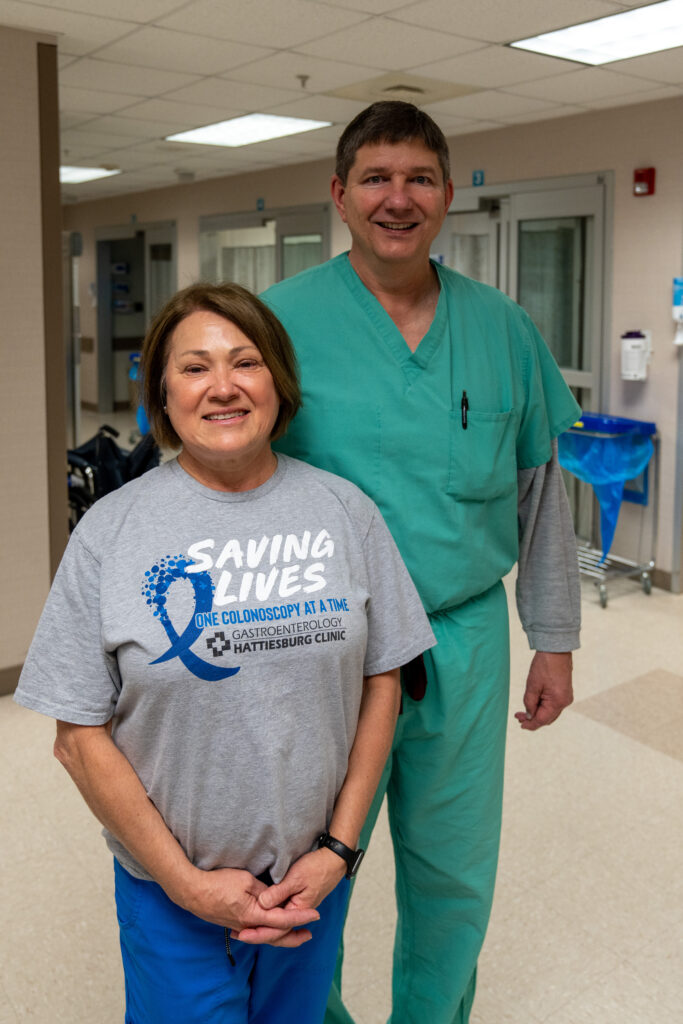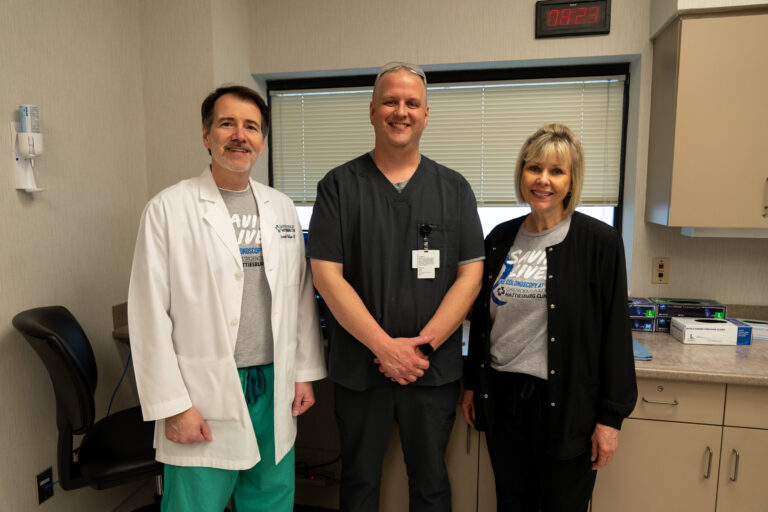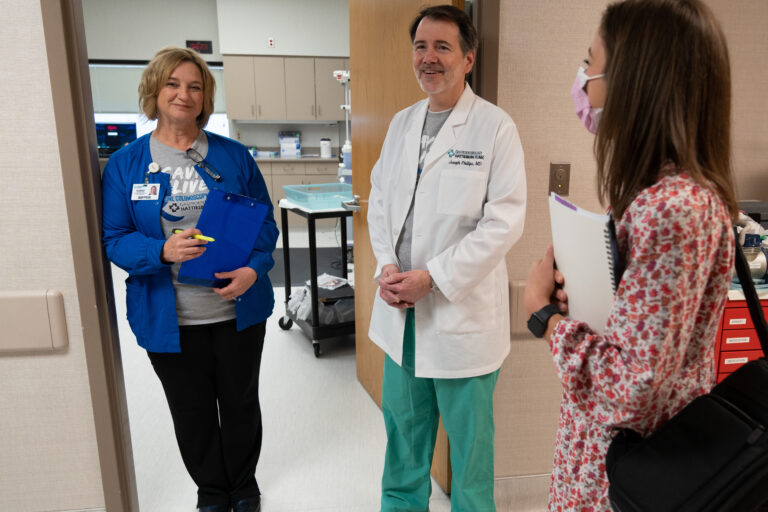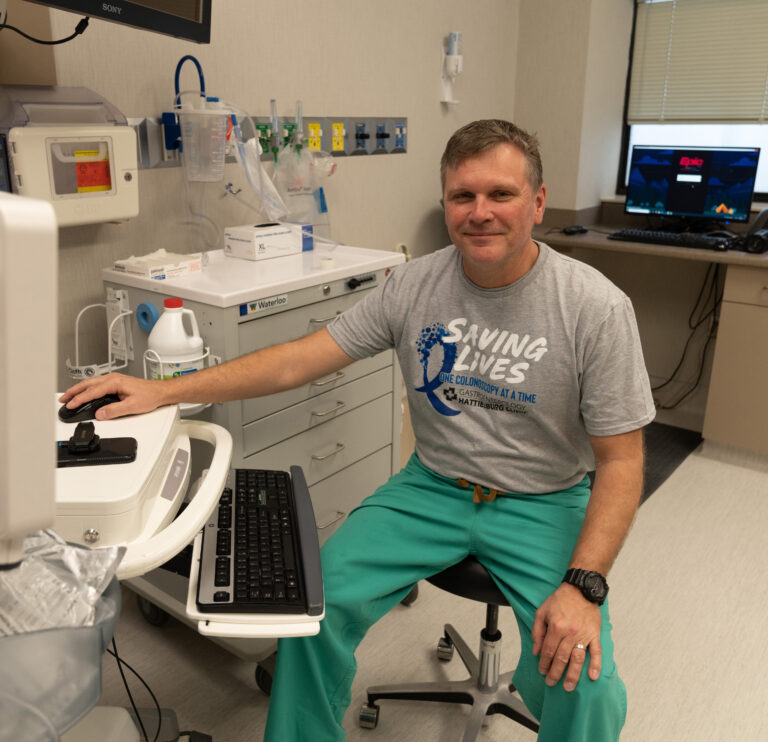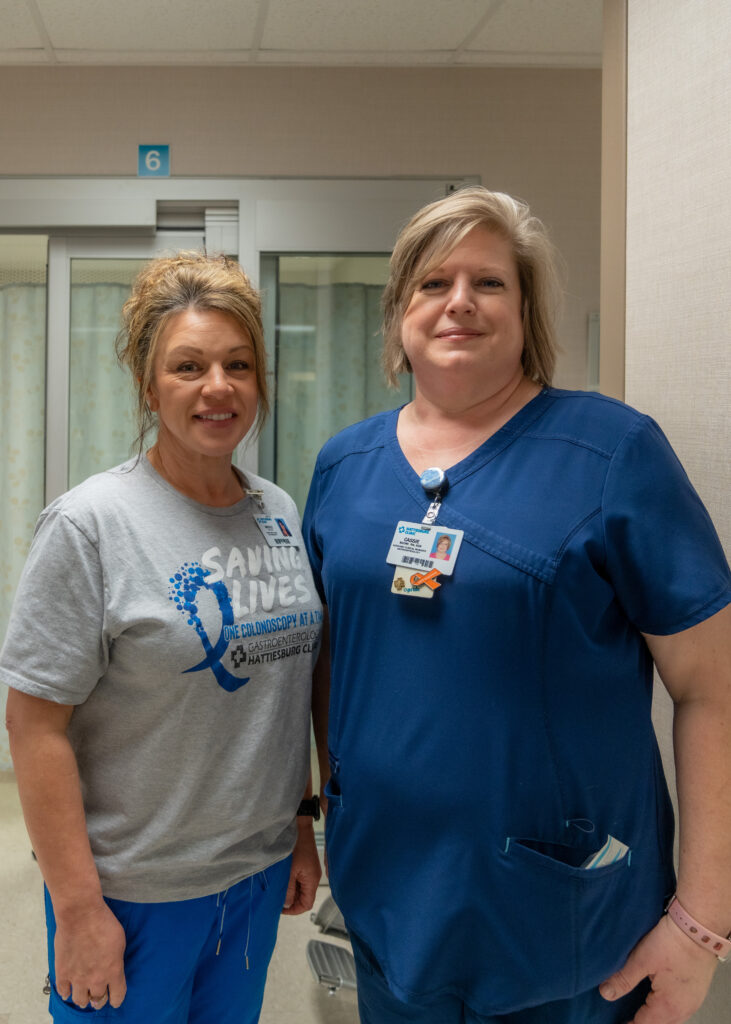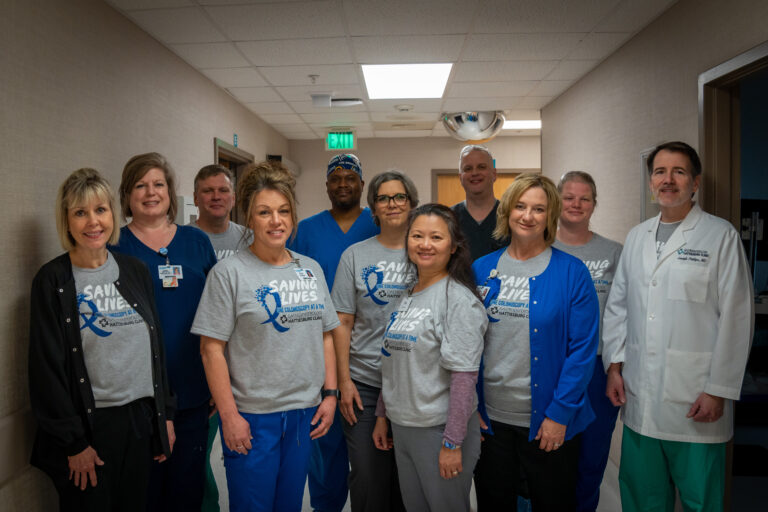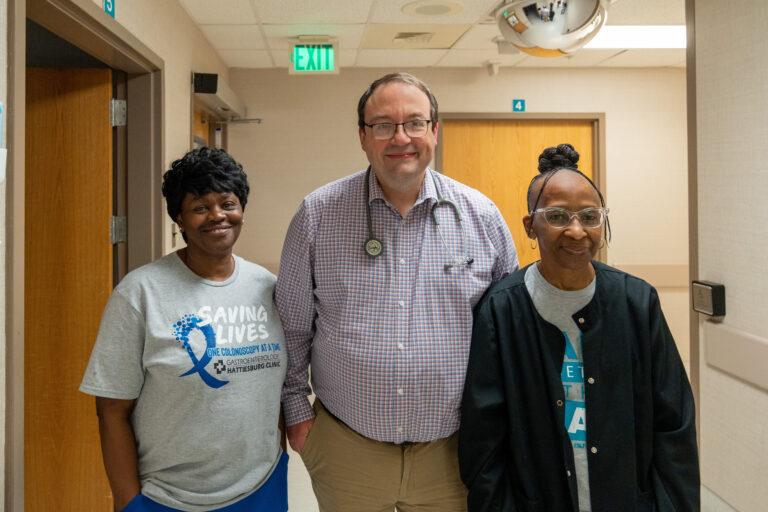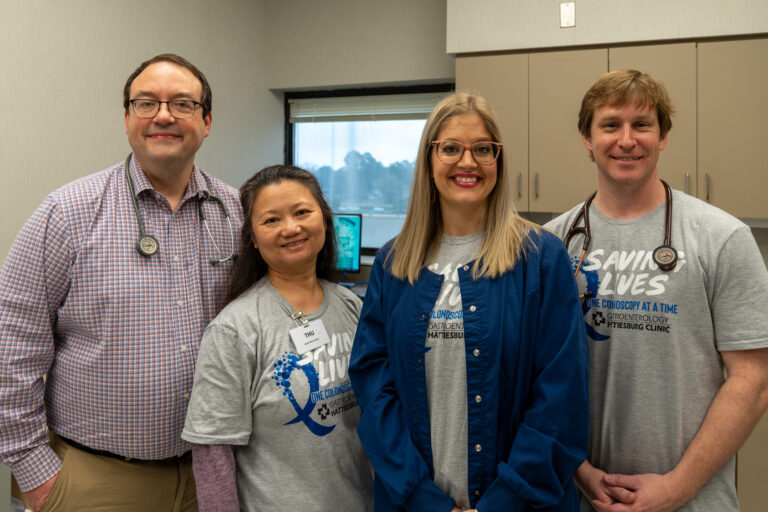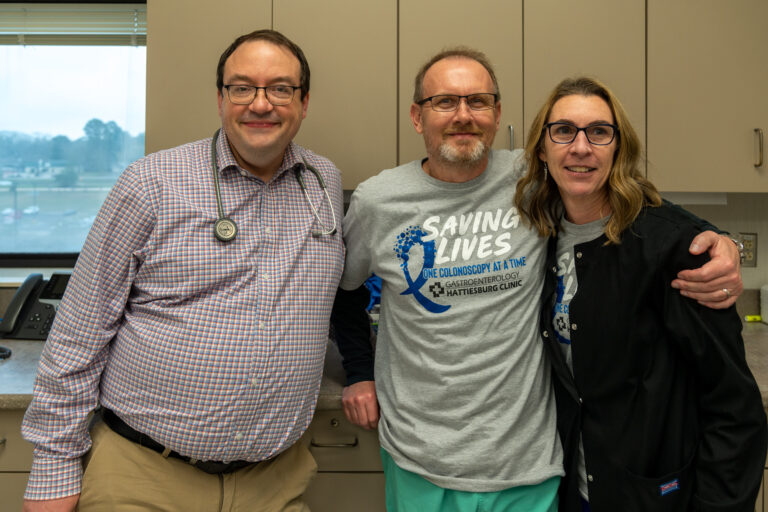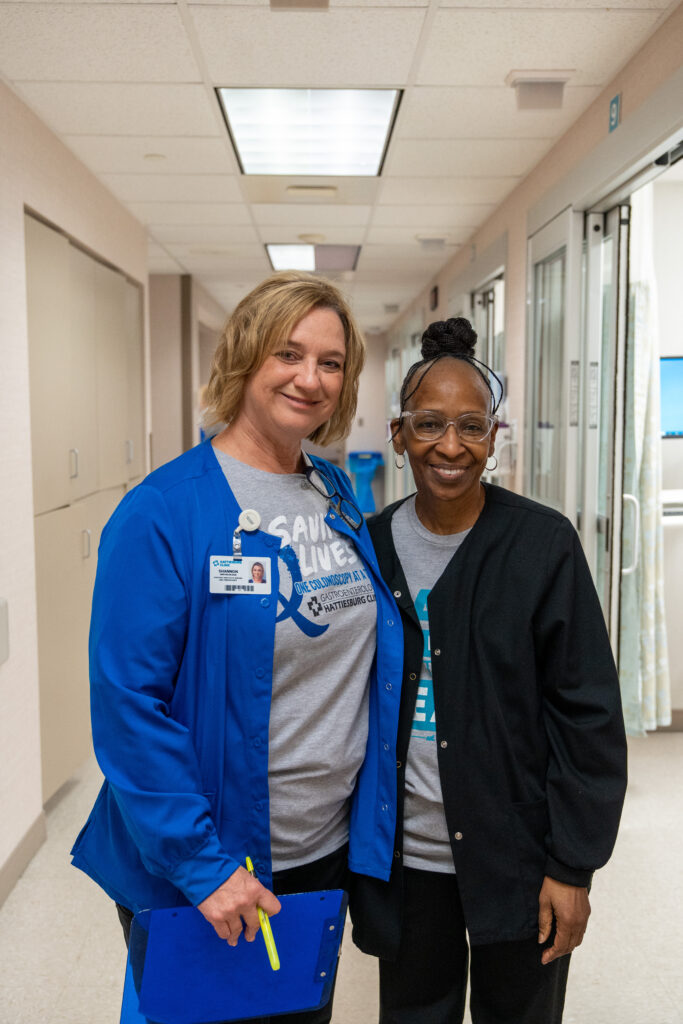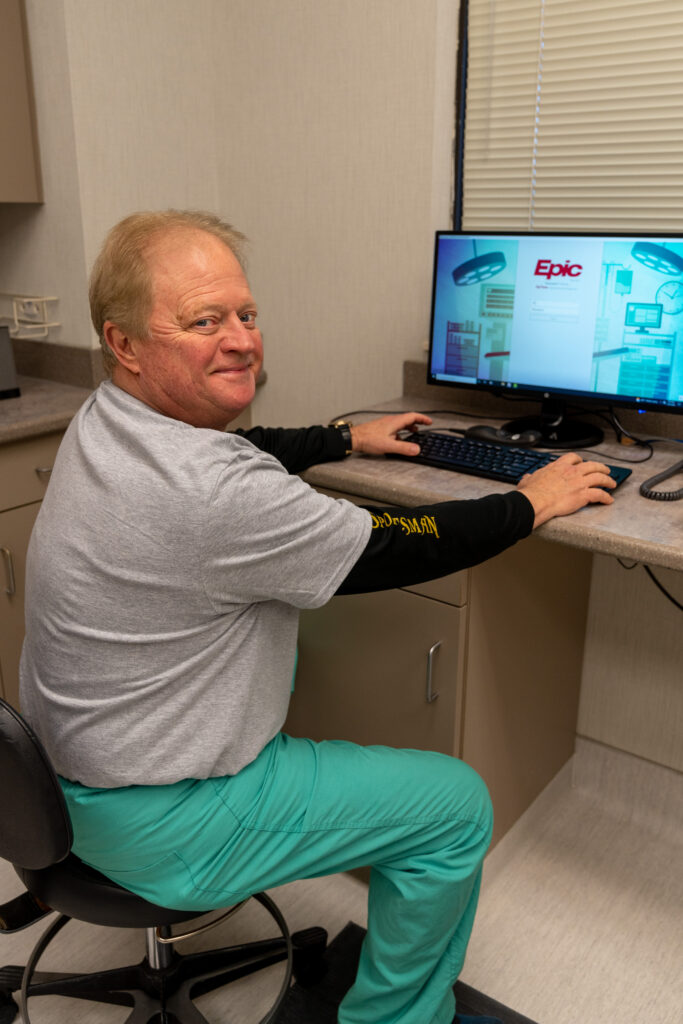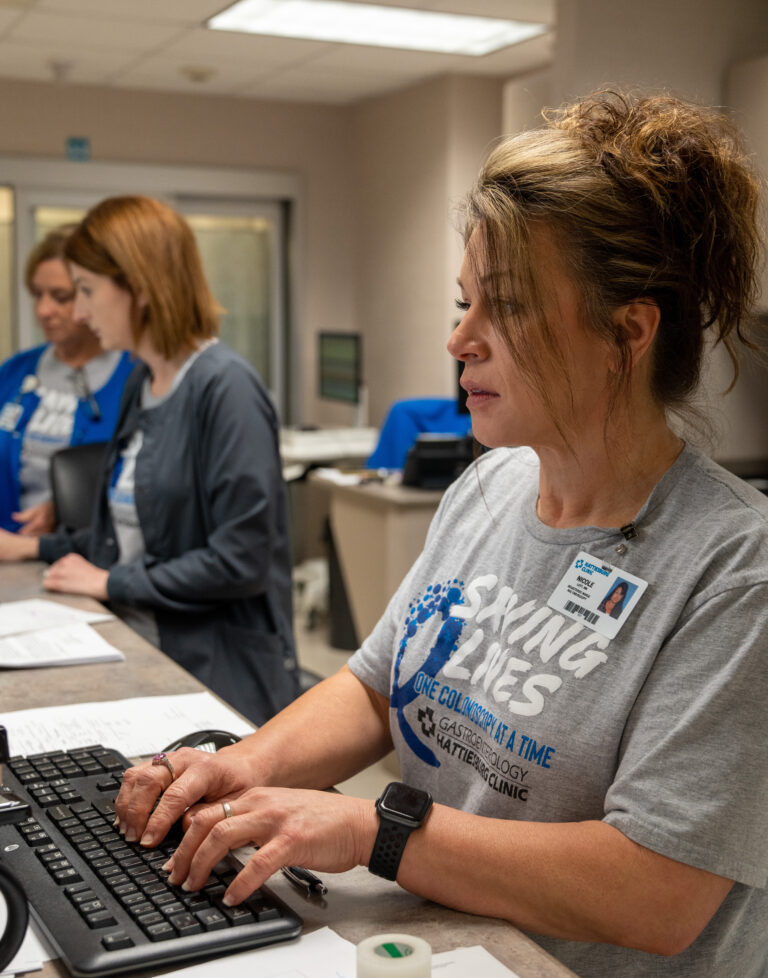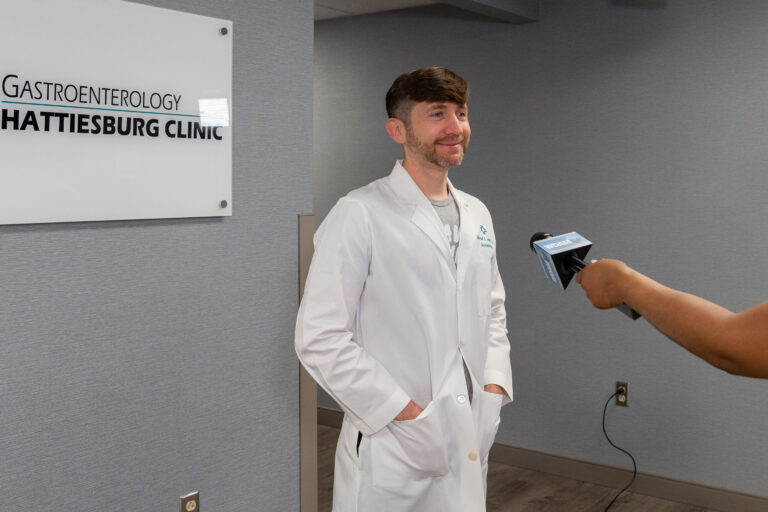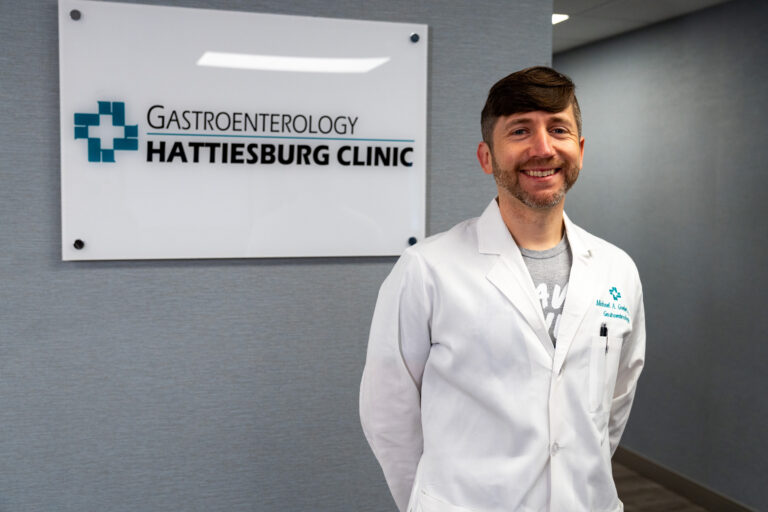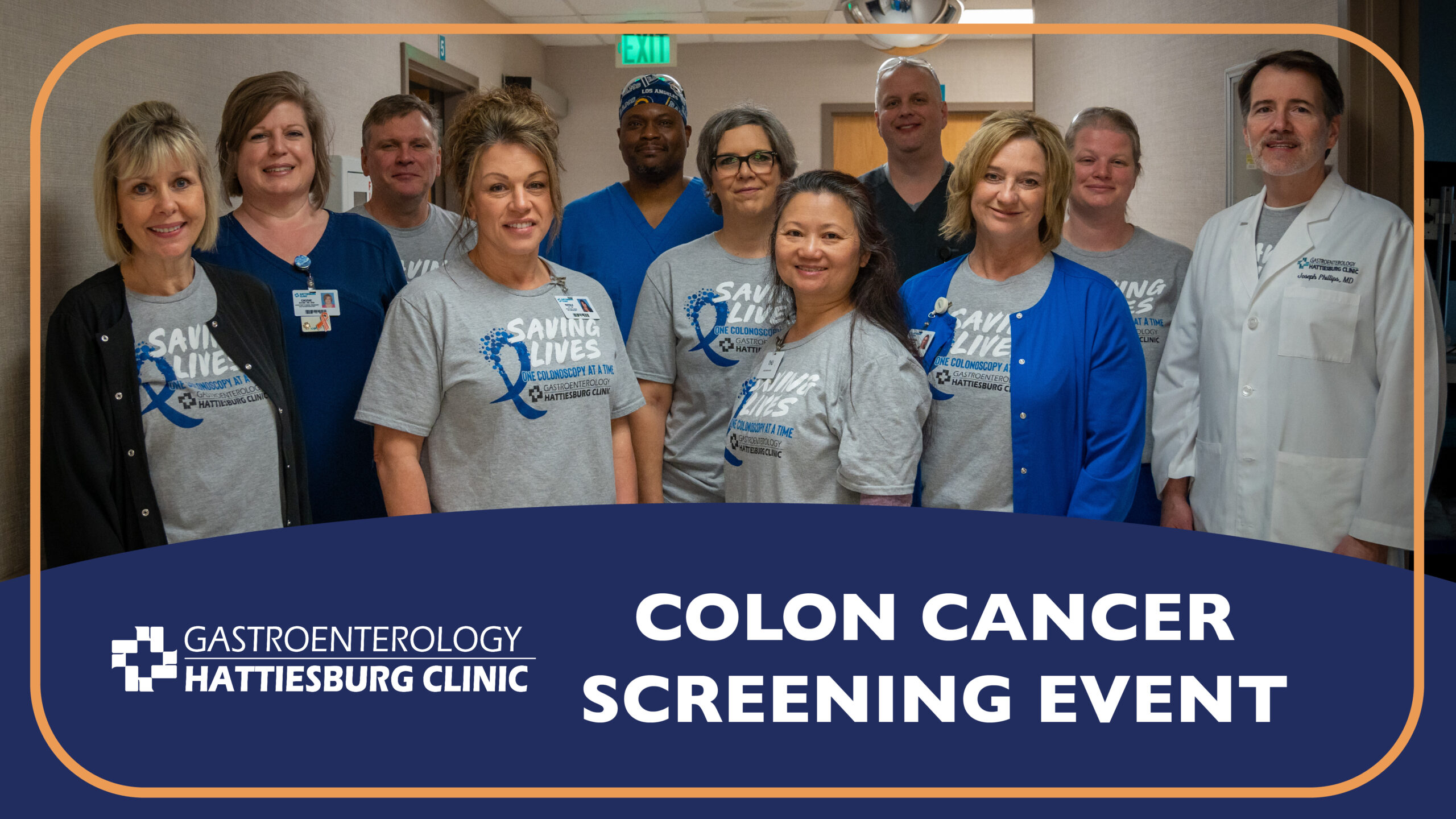For Colorectal Cancer Awareness Month, observed in March, Hattiesburg Clinic Gastroenterology* hosted an annual colon cancer screening event to promote the importance of regular screenings, especially as colon cancer steadily increases in people younger than 50.
According to the American Cancer Society (ACS), colon cancer deaths continue to decrease mostly likely due to screenings, which helps detect polyps for earlier removal. However, while incidence rates in older adults have dropped, rates in younger groups have been increasing by 1% to 2% a year since the mid-1990s.
The Centers for Disease Control & Prevention recommends regular screenings beginning at age 45. Those who have a history of polyps, gastrointestinal disease, or whose family has a history of colon cancer or have had certain types of polyps may need to be screened earlier than the recommended age.
“We are seeing younger people get diagnosed with colon cancer, and many do not experience symptoms,” Hattiesburg Clinic Gastroenterologist Michael A. Goebel, MD, said. “That is why getting screened for colon cancer is so crucial to saving lives. Through screenings, we can detect and remove any colon polyps that could become cancerous.”
On Saturday, Feb. 25, 2023, the gastroenterology team at Hattiesburg Clinic provided a free colon cancer screening to 19 patients to help improve screening rates and raise awareness for Colorectal Cancer Awareness Month.
A typical colonoscopy for uninsured patients can be a substantial financial investment and can result in postponement of a life-saving procedure. Through this fourth annual event, those fees were waived.
Hattiesburg Clinic patient, Katherine Sammons, originally planned to have a colonoscopy done in January; however, after losing insurance coverage, she had to cancel her appointment. A few weeks later, she was offered the opportunity to participate in this year’s free colon cancer screening event.
“When I found out this option was available, I certainly jumped on it,” Sammons said. “My husband lost his mother to colon cancer, so it was very important for him that I get screened. My family also has a history of colon cancer.”
“I am very thankful that this program is available for people like me who may be going through a tough time or have lost their insurance and have no other recourse,” Sammons added.
“If this had not been made available to me, I may have passed up getting screened until maybe it was too late. You never know how these things will turn out, so I am very thankful for the opportunity to participate.”
To learn more about colorectal cancer, visit www.cancer.org or contact your primary care physician. For more details about Hattiesburg Clinic Gastroenterology, visit www.hattiesburgclinic.com/gastro.
*The event was held in partnership with Hattiesburg Clinic’s Gastroenterology, Anesthesiology, Pathology, General Surgery and primary care departments.
